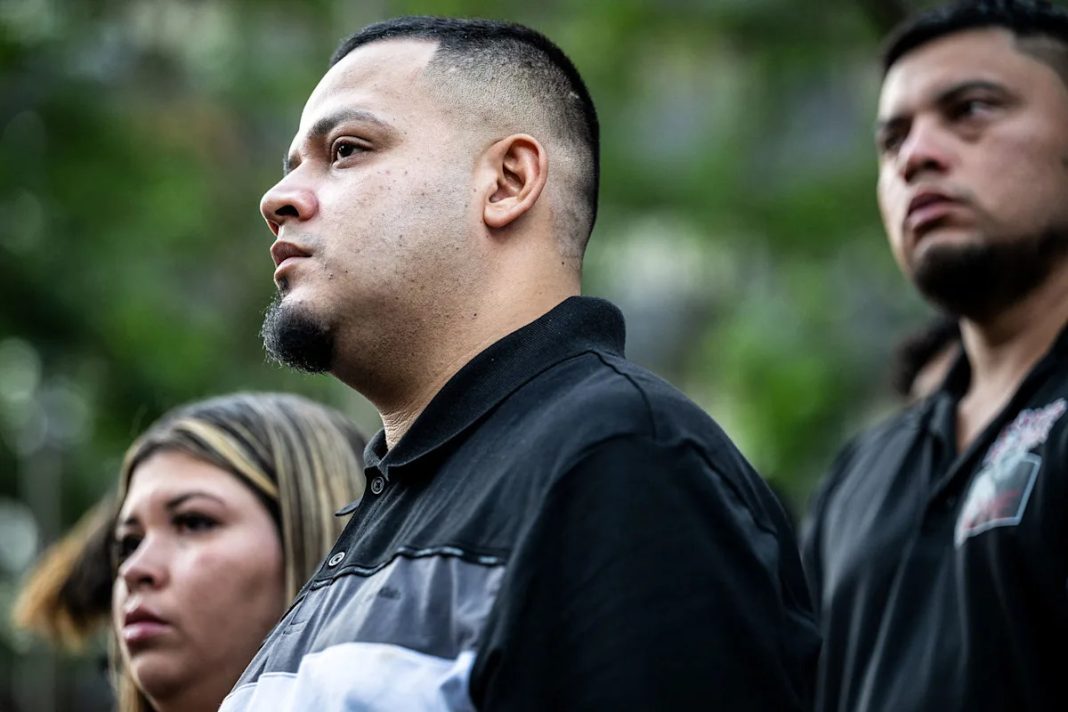There’s a legal hurdle standing in the way of the Trump administration’s vindictive prosecutions: the fact that it’s illegal to bring vindictive prosecutions. On that note, a recent ruling in favor of Kilmar Abrego Garcia shows that the administration’s retaliatory actions risk getting some criminal cases tossed out before they reach juries.
While the decision from a Tennessee judge is only a provisional one that lets Abrego pursue the rare issue of vindictive prosecution, it is still remarkable for going that far, given the high bar for pressing such claims. And it comes as other high-profile defendants have raised and likely will continue to raise similar claims against their apparently politically motivated charges. Rep. LaMonica McIver, D-N.J., has made such a motion in her case, and former FBI Director James Comey, who was just recently charged and will be arraigned Thursday, may do the same in his.
The decision in Abrego’s case came Friday from U.S. District Judge Waverly Crenshaw. “In sum, Abrego has carried his burden of demonstrating some evidence that the prosecution against him may be vindictive,” the Obama appointee wrote.
The judge focused on remarks by Deputy Attorney General Todd Blanche, one of several former personal lawyers for Donald Trump who now work at the Justice Department. Crenshaw found it “most telling” that Blanche made comments during a television interview that linked Abrego’s criminal charges in Tennessee to the civil lawsuit Abrego had filed in Maryland for his return to the U.S. after the government illegally sent him to El Salvador.
“The Court finds Abrego has sufficiently presented some evidence that the Government had a stake in retaliating against him for exercising his rights in the Maryland suit and deterring him from continuing to exercise those rights,” Crenshaw wrote. He noted that the timeline of the civil lawsuit, followed by criminal charges, “suggests that Abrego’s prosecution may stem from retaliation by the DOJ and DHS due to Abrego’s successful challenge of his unlawful deportation in Maryland.”
The litigation in Abrego’s criminal case runs parallel to his civil suit and immigration proceedings, as the federal government still attempts to remove him from the U.S.
Abrego has pleaded not guilty to the criminal charges of illegally transporting undocumented immigrants. The charges stem from a 2022 traffic stop, timing that led Crenshaw to observe that the yearslong delay from then to Abrego’s 2025 charges is “atypical” in his jurisdiction.
“The data presented shows that when compared to all of the criminal cases in the Sixth Circuit involving a traffic stop from August 19, 2010 to August 19, 2025, only Abrego’s charges were filed significantly — 903 days — after the date of the traffic stop,” Crenshaw wrote. The U.S. Court of Appeals for the 6th Circuit is the federal appeals court that covers Tennessee and nearby states. “This supports his contention that there may be an improper motive for his prosecution,” the judge wrote.
To be sure, Crenshaw hasn’t yet decided whether Abrego’s charges are vindictive or not. Rather, his ruling lets Abrego probe the issue by getting discovery — that is, by letting him investigate the issue. The scope of that discovery, what it will reveal and what the judge will do with any further revelations remain to be seen.
But regardless of what happens next, even this preliminary ruling is significant — and it might not be the last of its kind during this revenge-themed administration.
Subscribe to the Deadline: Legal Newsletter for expert analysis on the top legal stories of the week, including updates from the Supreme Court and developments in the Trump administration’s legal cases.
This article was originally published on MSNBC.com

